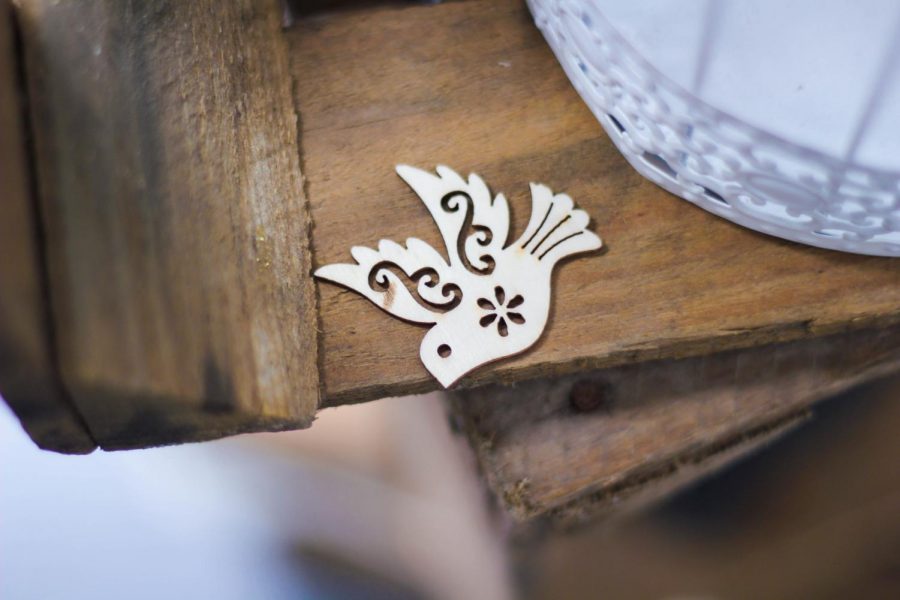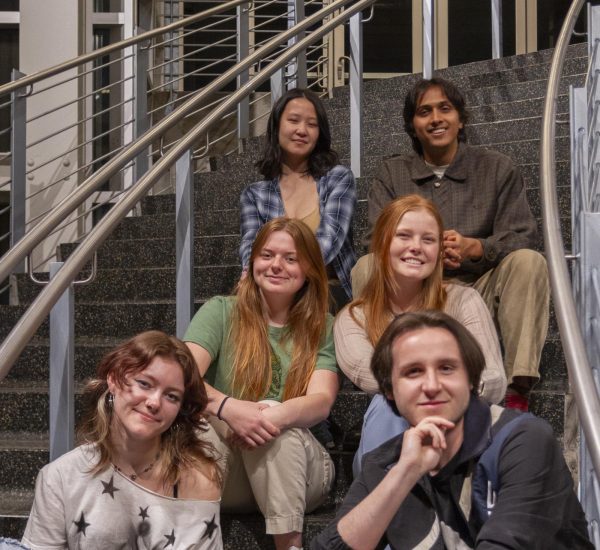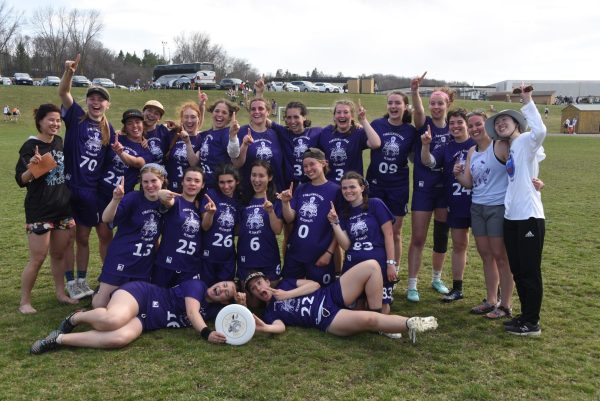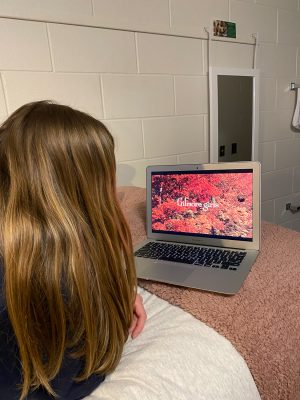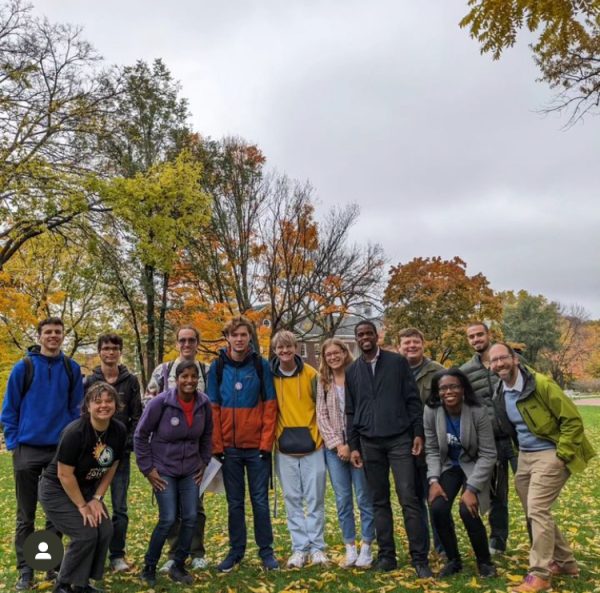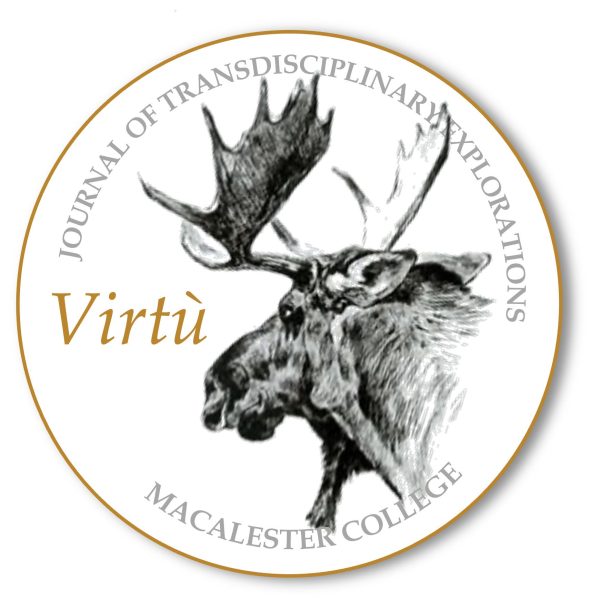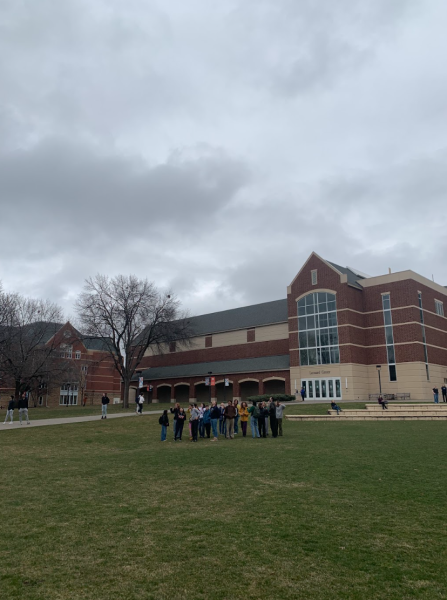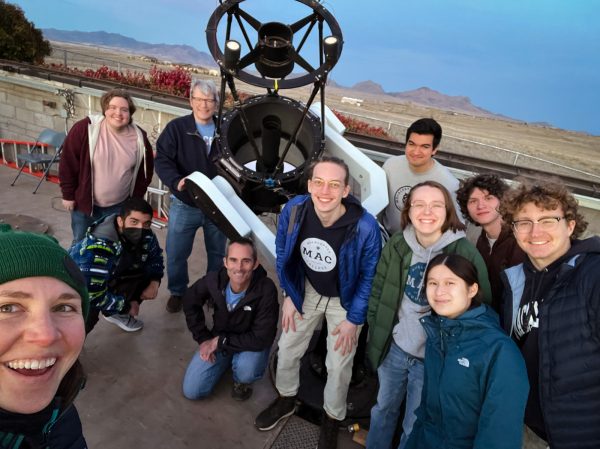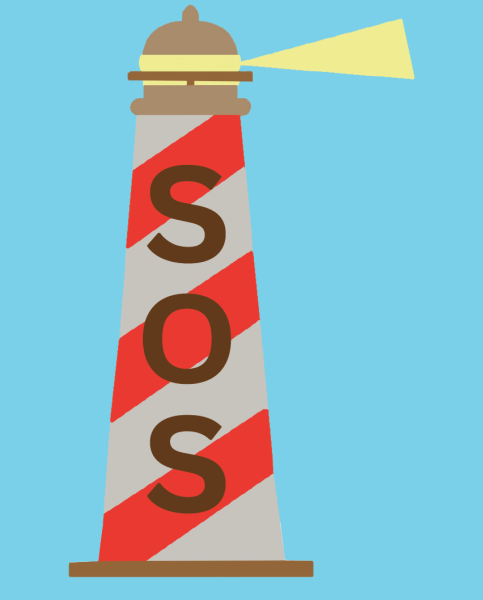Macalester Peace Corps volunteers reflect on experience abroad as the agency turns sixty
Photo by Tamara Menzi on Unsplash
April 8, 2021
This year, the Peace Corps is celebrating the sixtieth anniversary of its founding. Many Macalester graduates have volunteered with the Peace Corps and alumni continue to serve communities around the world through the agency. Throughout its 60-year history, 397 Macalester alumni have served in the Peace Corps and dedicated two or more years of their lives to international aid and service.
Julee Muro de Gerome is a recruiter with the Peace Corps. She is responsible for recruitment in Minnesota and is herself a Corps alumni. According to Muro de Gerome, the Peace Corps’ mission is diverse. Primarily, the Peace Corps provides aid to countries and communities that request it.
“Volunteers are serving in countries who have come to Peace Corps asking for trained individuals in certain areas,” Muro de Gerome said. “So our mission includes meeting the needs of these interested countries, but also that grassroots peace and friendship that occurs through integration by having volunteers live and work in these communities for two years.”
The Peace Corps’ emphasis on community integration means that volunteer work happens in a direct and intimate way. Beyond delivering aid, the Corps promotes a cultural exchange by placing volunteers on-site.
“[Our mission includes] meeting those technical needs, but then sharing ourselves as Americans for better understanding and then bringing back our understanding of our new homes and our new friends and families back home,” Muro de Gerome said.
Most Peace Corps volunteers do a 27-month volunteer commitment, which includes a three month in-country training period followed by a full two years of service. It is also possible to commit to a shorter period, but these are reserved for those who have already served or are trained professionals. The training period involves learning local languages, learning nuances of local culture and training for the volunteer’s specific role in the community.
Gabriel Barrett ’17, who served in Morocco, said the training emphasized language acquisition and getting used to societal norms and customs.
“We were given a host family and two months with a language LCF (Language and Culture Facilitator),” Barrett said. “The LCF, basically six days a week, taught us Darija.”
Darija is a form of Arabic commonly spoken in Morocco.
“They kind of hold your hand while they walk you through how to live in Morocco,” he added.
Claire Gillen ’19 had a similar experience. Before leaving the US, she spent a few days getting to know the people in her cohort. Afterwards, Gillen flew to Madagascar and immediately started her training, living with a host family for almost three months. Training was usually five or six days per week. According to Gillen, her host family helped her acclimate to her new life and was important in building the intimate community bonds that are an integral part of the Peace Corps experience.
“I loved my host family,” she said. “You move in with them on, I think, day two of training so you don’t speak any Malagasy yet and they don’t speak English, so it’s a lot of gesturing and learning through pointing. They teach you how to take a bucket bath, how to cook Malagasy food on a fire, how to use things like a chamber pot.”
The experience of building a long-term and close relationship with community members, as well as completely immersing yourself in a foreign language, presents unique opportunities to grow.
“Part of the reason why it’s a long-term experience is because it’s sustainable,” Gillen said. “That way you know you’re building a more concrete relationship doing better work. It’s not just a mission trip where you go for two weeks and then leave.”
Gillen worked as an English teacher at a local middle and high school, where large classes were common. In total, she had around 500 students.
“I had about 90 students per class,” Gillen said. “So that was difficult, but they were really well behaved, very receptive and I was very welcomed in the community. It was fantastic overall”.
Anne Robinson ’80 also volunteered as a teacher in Madagascar but was evacuated as the COVID-19 pandemic struck. She said she was impressed by how much medical support was available to volunteers.
“The Peace Corps really takes care of you as far as your health,” Robinson said. “There was a team of three medical professionals who were on call 24 hours a day. If they had to evacuate you out of your village, then you were evacuated. I felt really safe considering it was such a different place.”
Barrett says the Peace Corps offers opportunities for freedom in your work that is a rare occurence in a more conventional work environment. Barret worked at a local youth center in Zagora, Morocco, mostly teaching English. However, he was able to complete several other projects, such as a class teaching adults how to use Microsoft Excel.
“Unless you’re an organizer, your job was to know everyone in the town,” Barrett said. “I could just decide to bike to a different part of town and knock on an association or knock on a government department and introduce myself and say, ‘Hey, I want to get to know you.’”
Robinson planned an event with a counterpart who was also an English teacher to invite the community’s teachers for a week-long, eight hours per day, English and teaching workshop.
“It really was rewarding because we just did it on our own,” Robinson said.
Of course, living in a foreign culture by yourself presents unique challenges that can be difficult to overcome. Loneliness, unfamiliarity with the language and few connections to home can become big burdens to bear.
“It’s a different social environment,” Barrett said. “You gotta learn to make friends with people in your town. Sometimes you’re lonely.”
Gillen struggled with uniting the altruistic intentions of her work with her privilege relative to many community members, as well as critiques about neocolonialism that are often aimed at the development sector.
“With teaching English, you know, just on a day to day basis being like, ‘Well, how many of my students are actually going to learn from this one assignment? Is this really going to make a difference in their lives? Am I just continuing to build on this world globalization that feeds off of the English language?’” Gillen said. “At the same time, if any of these students, even one of them, was able to learn a lot from me that went on in some way to help their career, that’s also helping in a big way.”
Gillen made sure to be aware of these criticisms and incorporate them in her work.
“You individually have to kind of do that work every single day. Especially with my students, I was very aware that it was really important for them to see me not only speaking English, but also to be speaking Malagasy with them,” she added.
As is the case with most job positions, prospective Peace Corps volunteers first need to submit an online application. Only American citizens can serve in the Peace Corps. Muro de Gerome notes that the application is competitive and it is important to tailor your resume and experiences to maximize your chances of landing a spot in the Corps.
“Of course it’s not required that you apply or serve in Peace Corps right after college,” Muro de Gerome said. “Our oldest volunteer was at 86, I believe. But many people, when they’re in school, really think about what they are going to do directly after graduation.”
“There’s [always] this opportunity to think about what you can do now to really become competitive as an applicant,” she added. “So, working towards volunteerism, mentoring, tutoring, leadership opportunities. We consider the process really starting from that first time that you’re considering Peace Corps.”
According to Robinson, if a student is willing to be flexible and interested, they should try it out.
“I really think it’s a huge opportunity for people,” Robinson said.

